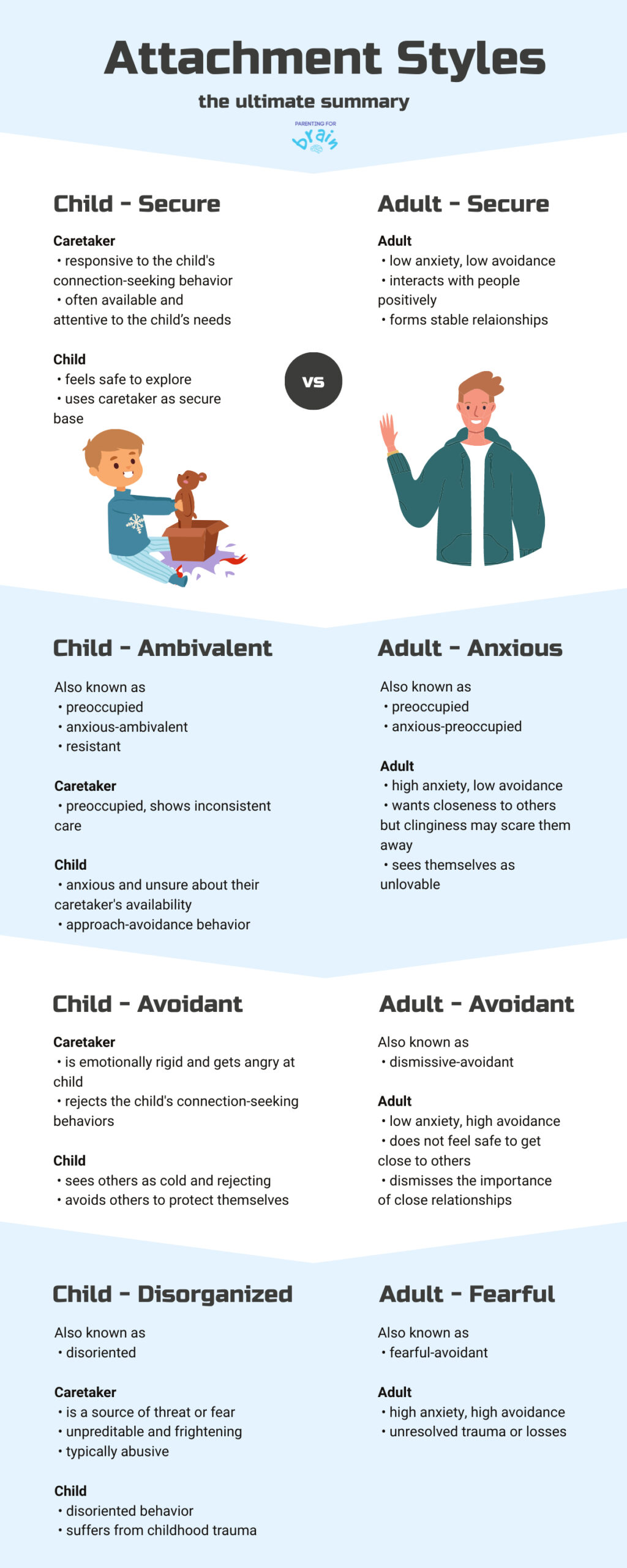Attachment Styles and Their Influence on Adult Relationships
FACT-CHECKED ✅
Understanding how we relate to others is central to both individual well-being and the health of our communities. Attachment theory posits that the emotional bonds formed in early life set the stage for later relationships. Over the past few decades, researchers have expanded this framework to explore how adult relationships are influenced by these early attachment patterns. This article critically reviews key research on attachment styles and examines their implications for adult relationships. It also considers how interventions might foster healthier relational patterns, ultimately contributing to better mental health and social cohesion.
 |
| Attachment theory posits that the emotional bonds formed in early life set the stage for later relationships. (📷empowervmedia) |
Attachment theory originated with the work of John Bowlby in the mid-20th century. Bowlby observed that children develop emotional bonds with caregivers, which serve as a prototype for future relationships. Mary Ainsworth later operationalised these ideas through her "Strange Situation" study, identifying distinct attachment patterns among infants - secure, anxious, and avoidant. These foundational studies have paved the way for extensive research into how these early patterns persist into adulthood, influencing romantic bonds, friendships, and even workplace relationships.
Early research by Bowlby (1969) and Ainsworth et al. (1978) established that the quality of early attachment has profound implications on later emotional regulation and interpersonal dynamics. Although originally focused on child-caregiver relationships, the theory has been broadened by scholars such as Hazan and Shaver (1987) who adapted attachment concepts to explain adult romantic love.
Attachment Styles in Adulthood
In adulthood, attachment styles are typically categorised into four types: secure, anxious (or preoccupied), avoidant (or dismissive), and disorganised. Securely attached individuals generally exhibit confidence in themselves and trust in others, leading to satisfying and stable relationships. Conversely, those with anxious attachment may crave closeness yet fear abandonment, while avoidant individuals tend to value independence over intimacy, often distancing themselves emotionally. Disorganised attachment, marked by conflicting behaviours and a lack of coherent strategy in relationships, is associated with unresolved trauma and can lead to volatile interpersonal dynamics.
 |
| (📷parentingforbrain) |
Research by Mikulincer and Shaver (2010) and analyses by Fraley and Shaver (2000) have provided robust frameworks for understanding these styles in adult relationships. Their work has demonstrated that the way individuals interact with their partners - whether through supportive communication, conflict resolution, or intimacy - correlates closely with their underlying attachment style.
Influence on Adult Relationships
Attachment styles significantly influence how adults form and maintain relationships. Secure individuals are generally better at managing conflicts and providing emotional support, which fosters mutual trust and satisfaction. Those with insecure attachment - anxious or avoidant - often encounter challenges in sustaining intimacy and may engage in maladaptive communication patterns that contribute to relationship distress.
For example, research indicates that individuals with anxious attachment may interpret neutral or ambiguous actions by their partners as signs of rejection, triggering cycles of insecurity and conflict. Similarly, avoidant individuals might withdraw during emotionally charged moments, undermining opportunities for resolution and deep connection. These dynamics not only affect romantic relationships but also extend to friendships and professional interactions, where the ability to trust and communicate effectively is essential for overall well-being.
Empirical Evidence and Systematic Findings
A wealth of empirical research supports the influence of attachment styles on adult relationships. Studies have consistently found that secure attachment is associated with higher relationship satisfaction, better conflict resolution, and improved mental health outcomes. Conversely, insecure attachment is linked to increased stress, depression, and relational instability. For instance, this review by Kobak and Madsen (2008) discusses how secure attachment contributes to resilience and better interpersonal outcomes, supporting the claim regarding the benefits of secure attachment in adulthood.
Moreover, qualitative studies have shed light on the nuanced ways in which attachment impacts communication and emotional support. They indicate that individuals with secure attachment are more effective at providing emotional support in close relationships, aligning with the claim regarding supportive interactions. Such systematic reviews and meta-analyses underscore the critical importance of attachment security as a predictor of overall life satisfaction and relationship quality.
Implications for Therapy and Social Policy
The insights derived from attachment research have significant implications for both therapeutic practices and social policies. Therapeutically, interventions that aim to foster secure attachment - such as Emotionally Focused Therapy (EFT) - have shown promise in improving relationship satisfaction and reducing relational conflict. These interventions help individuals re-frame their attachment-related fears and adopt more adaptive ways of interacting with their partners.
From a policy perspective, understanding the long-term effects of early attachment can inform educational and family support programs. For example, early childhood interventions that promote secure attachments can have lasting impacts on mental health and social functioning, reducing the burden on healthcare systems and contributing to a more resilient society. By emphasising prevention and early intervention, policymakers can help mitigate the adverse effects of insecure attachment patterns, thereby fostering healthier communities.
 |
| The quality of early attachment has profound implications on later emotional regulation and interpersonal dynamics. (📷empowervmedia) |
Attachment styles, deeply rooted in our early experiences, continue to shape our adult relationships in profound ways. Secure attachment lays the foundation for trusting, supportive, and resilient relationships, while insecure attachment can lead to cycles of misunderstanding and conflict. Through a careful examination of historical research, empirical evidence, and systematic reviews, this article highlighted the enduring impact of attachment theory on interpersonal dynamics. As we continue to explore these connections, it becomes clear that fostering secure attachment is not only a matter of individual well-being but also a cornerstone for building healthier, more connected societies. Embracing the insights from attachment research can guide both therapeutic practice and social policy, ultimately promoting a future where every individual can achieve emotional fulfilment and genuine connection.
Article produced by @jorgebscomm for @empowervmedia
⭐⭐⭐


